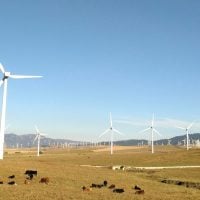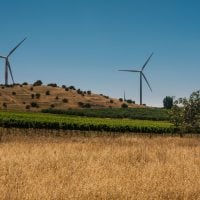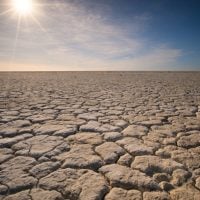Deadline: 08-Jul-24
The Raoul Wallenberg Institute of Human Rights and Humanitarian Law (hereinafter “RWI”), Lund, Sweden, in collaboration with its academic cooperation partners under the Zimbabwe Human Rights Capacity Development Programme 2024-2026, is launching a call (hereinafter “Call”) for research grants proposals.
Grants under the Call are awarded to research projects relevant to the theme, “Environment, Climate Change and Human Rights”. Academic faculty members and researchers from Zimbabwean universities, independent research centres, independent commissions and civil society organisations are eligible to apply both individually and jointly. Research projects must be carried out during the period 16 July – 20 November 2024 and result in a paper and short policy brief for presentation and publication. Financial support to RWI for the research grants is provided by the Embassy of Sweden in Zimbabwe.
Human survival depends on the environment for direct and indirect wellbeing. As such, threats to the environment are threats to human rights, to peace, security and sustainable development. The multiple planetary crisis of this age which is made manifest through, inter alia, environmental degradation, biodiversity loss, pollution and climate change threaten human survival. This is exacerbated by growing multidimensional poverty, inequalities and fragility (UNDP, 2022). Thus, realizing the right to a clean, healthy and sustainable environment, including through strengthening positive environmental management and climate action is critical for addressing inequality and poverty, and enabling long term prosperity for all (UNEP, 2022; UNDP, 2022).
Priority Areas
- Given the preceding context, this year’s Call is open for research grant proposals relevant to the theme, “Environment, Climate Change and Human Rights in Zimbabwe” whereby research related to the following areas is encouraged:
- Environment and Human Rights:
- Analyzing implications and interdependencies that the protection of the environment generates on the enjoyment of human rights, and the way potential conflicts of interests should be managed in order to achieve a fair balance in a democratic society.
- The influence of international human rights law in environmental law and/or climate action: justifications and application.
- The relationship between substantive and procedural environmental rights and other human rights.
- Environmental issues affecting human rights e.g biodiversity loss, pollution, development projects, environmental degradation, etc.
- The nexus between human rights and sustainable development.
- Analyzing implications and interdependencies that the protection of the environment generates on the enjoyment of human rights, and the way potential conflicts of interests should be managed in order to achieve a fair balance in a democratic society.
- Climate Change and Human Rights:
- Focusing on the impacts of climate change on human rights, including the right to life, health, food, water, and sanitation. Climate change induced environmental disasters are a key focus in this sub-theme. How can human rights provide a framework for addressing the impacts of climate change or climate change induced disasters in Zimbabwe?
- The relationship between climate change and the enjoyment of specific human rights such as the right to health, right to food, right to water and sanitation, right to adequate housing, among others in the jurisdiction.
- The importance of regional and sub regional developments in Africa on human rights, environmental rights and climate change law, and its relevance to Zimbabwean domestic jurisdiction.
- Focusing on the impacts of climate change on human rights, including the right to life, health, food, water, and sanitation. Climate change induced environmental disasters are a key focus in this sub-theme. How can human rights provide a framework for addressing the impacts of climate change or climate change induced disasters in Zimbabwe?
- Climate change, environmental rights and institutional mechanisms:
- How can they ensure that environmental and climate policies and actions introduced by different governmental authorities (National, Provincial, Local) respect human rights?
- Exploring human rights based approaches to climate change governance at national, provincial and local levels.
- Exploring human rights based approaches to environmental governance at national, provincial and local levels.
- Adopting human rights based approaches to climate change action (mitigation and adaptation) and environmental management at national, provincial and local levels.
- Exploring sustainable financing for climate action and environmental protection in Zimbabwe.
- Interrogating the role of institutional mechanisms in responding to climate change induced environmental problems.
- How can they ensure that environmental and climate policies and actions introduced by different governmental authorities (National, Provincial, Local) respect human rights?
- Environmental Protection and Sustainable Development:
- Investigating the manner in which sustainable development goals (SDGs) could be achieved at national and local levels through the protection of the environment and climate action.
- Exploring the role of environmental rights in advancing climate change and biodiversity conservation in Zimbabwe.
- Climate change, human rights and sustainable agricultural practices in Zimbabwe.
- Poverty, climate change and human rights in Zimbabwe.
- Environmental management and sustainable resource exploitation in Zimbabwe.
- Investigating the manner in which sustainable development goals (SDGs) could be achieved at national and local levels through the protection of the environment and climate action.
- Business, Climate change, Environmental Protection and Human Rights:
- Climate change, human rights and the extractives industry in Zimbabwe.
- The role of businesses in climate change action and the protection of human rights (corporate social accountability).
- Climate change, human rights and natural resources governance, including forestry, fisheries, wildlife, land, etc.
- Balancing potential conflict of interests between pursuing sustainable development, the exploitation of natural resources, the protection of the environment and the safeguards of the human rights of the local communities.
- Transition to Green Energies and Human Rights:
- Exploring human rights perspectives in the development of a carbon market legal framework.
- Human rights, climate change and green trade.
- Human rights, climate change and green procurement.
- Human rights and green energy security especially in rural contexts.
- Disaster risk reduction and management and Human Rights:
- Human rights based approaches to disaster risk reduction – prevention, response and recovery mechanisms; early warning mechanisms and use of technology.
- Human rights implications to sectoral approaches to disaster risk reduction, e.g. agriculture, forestry, fisheries, wildlife, land, etc.
- Disaster risk reduction governance and human rights.
- Environmental Protection and vulnerabilities:
- Balancing the protection of the environment with the rights of Indigenous and traditional communities, including the recognition of indigenous knowledge and management of natural resources.
- The protection of the rights of future generations in the context of the environment and climate change.
- Human rights based approaches to addressing the rights of those most vulnerable to climate change such as women, children, persons with disabilities, the elderly, and climate migrants in Zimbabwe.
- The exploration of the emergence of animal rights and the rights of nature, within the context of environmental protection and sustainable development, and their potential conflicts with the human rights of communities that depend on exploiting these resources for their sustainable survival.
- Climate Change, Environment and Gender Equality:
- Protection of the right of women and girls in the context of climate change.
- Human rights based gender perspectives on climate action and environmental protection in Zimbabwe.
- Environmental constitutionalism and climate change:
- The role of the courts in advancing environmental constitutionalism for climate action.
- The relationship between constitutional environmental rights and duties of state and non state actors.
- Exploring the influence of the growing (global) jurisprudence on climate litigation in the jurisdiction.
- Human rights, climate change and environmental governance, including measures to combat corruption, etc.
- Environment and Human Rights:
Scope of Research Grants
- Fifteen research grant proposals will be awarded with grants. Grants will be offered to applicants wishing to conduct research and to engage in desk/field research within Zimbabwe.
Funding Information
- The amount of the grant will be decided by the Selection Committee in light of the supplied simplified budget. In addition, the identified scope and needs of the research and other relevant factors of the project will be taken into consideration. As a point of reference, the budgets for individual research projects should not exceed USD 1000 and for a team of two on a research project USD 2000.
- With regard to attendance at the National Symposium and Policy Brief Workshop expected to be held 2 – 4 December 2024 in Harare, all grant recipients who do not live in Harare or its vicinity will be provided with compensation for transportation costs, as well as accommodation and a fixed daily allowance, in accordance with standard rates applied by RWI.
Expected Outputs
- Peer and mentorship support is offered to all research grant recipients throughout the research. Grant recipients are requested to participate in an online research methodology workshop expected to take place 22 July – 2 August 2024.
- As a final output of the conducted research, each grant recipient is required to produce and submit an advanced draft of the paper (6000 to 10,000 words), together with a short policy brief (1500 words), no later than 20 November 2024. Grantees are expected to present and discuss their papers at a two-day National Symposium on “Environment, Climate Change and Human Rights in Zimbabwe”, expected to be held in Harare, Zimbabwe 2-3 December 2024. Grantees are also expected to present and discuss their policy brief in a workshop that will be held immediately after the symposium, that is, on 4 December 2024. Grantees are expected to submit their final paper and short policy brief on or before 20 December 2024.
Eligibility Criteria
- Academic faculty members and researchers from Zimbabwean universities, independent research centres, independent commissions and civil society organisations are eligible to apply both individually and jointly. Proposals must demonstrate necessary support by the applicant’s dean/director (or equivalent).
For more information, visit RWI.









































